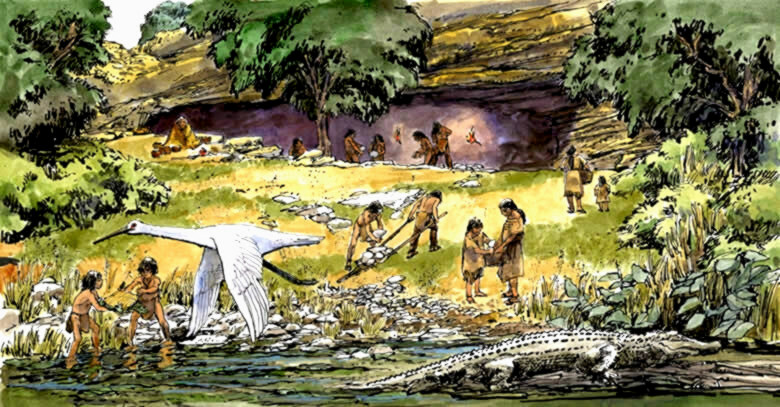Some things happen so commonly that we accept them without being aware of what is involved.
If I decide to make a cup of tea I think about kettles, mugs, milk and tea bags. But a hugely complex process is set
in motion without me being aware of it.
turn on the water tap,
fetch the jug
fill the jug with water
carry it to the kettle
fill the kettle
switch on the kettle
fetch the cup off the shelf
go to the can of tea bags
open the can
take out a tea bag
take it to the cup
put it in the cup
go to the fridge
take a carton of milk from the fridge
take the carton to the cup
pour the right amount of milk into the cup
switch off the kettle when it has boiled
take the kettle to the cup
pour hot water onto the tea bag
find a teaspoon
stir the tea
spoon out the teabag.
But this is a vastly simplistic portrayal of what is really
happening at the cellular,
inter-cellular, intracellular, molecular and atomic levels. Billions (possibly
trillions) of related events are set in motion. An unimaginably complex process
initiated by a single decision.
Could this be a clue to how the Creator works in human
history, for instance? He decides that a certain goal must be achieved at a
certain stage of human history and immediately the processes are set in motion
– processes involving perhaps millions of lives to varying degrees. He wills the
result, it happens and we call it fate or destiny or chance. Reality emerged such that God does not have to micromanage. Our free will is choosing whether to go with or against the flow and has serious consequences.
What set me off thinking this way was a report from Eben
Alexander, an academic neurosurgeon, who had a well documented after life
experience with a non-functioning neocortex and despite his former skepticism and which was the subject of a cover story in Newsweek.
To quote from his
book Proof of Heaven: a neurosurgeon’s journey into the afterlife:
‘…I began wordlessly putting questions to this wind and to
the divine being that I sensed at work behind or within it. Where is this place? Who am I? Why am I
here? Each time I silently posed one of these questions, the answer came
instantly in an explosion of light, colour, love and beauty that blew through
me like a crashing wave…a question would arise in my mind and the answer would
arise at the same time…it was almost as if, just as no physical particle in the
universe is really separate from another, so in the same way there was no such
thing as a question without an answer.’
He learned that our observable universe is part of an
infinite multidimensional reality suffused with love which we cannot access by science. If this is
the case it seems entirely plausible to assume God can bring about events in
human history, say, without having to ‘micromanage’.
And the fact that I can make a cup of tea without analyzing
every step seems to fit in with this greater picture.
See also Deep mystery of existence
See also Deep mystery of existence
John Sears
Author 2077: Knights of Peace

